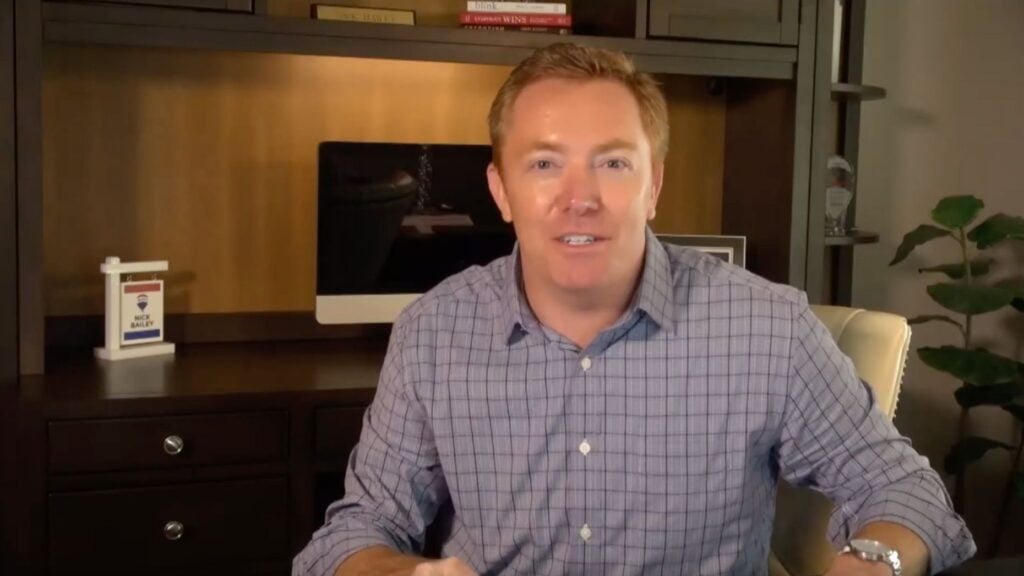In a shifting real estate market, the guidance and expertise that Inman imparts are never more valuable. Whether at our events, or with our daily news coverage and how-to journalism, we’re here to help you build your business, adopt the right tools — and make money. Join us in person in Las Vegas at Connect, and utilize your Select subscription for all the information you need to make the right decisions. When the waters get choppy, trust Inman to help you navigate.
Proptech may have hit a high point over the last few years with venture capitalists eager to invest in new industry disrupters. But as the market takes a turn, that interest may be waning.
Clelia Peters of Era Ventures and Nick Bailey of RE/MAX explored where this shift in investor sentiment may leave more traditional real estate brands like RE/MAX, in a panel during Connect Now on Thursday.
Clelia Peters | Coldwell Banker Warburg
“I think we’re in a radically shifted environment from where we’ve been for the past five to seven years, certainly since 2021 in particular, when the compliments of easily available venture capital and a very active housing market meant there was a lot of activity and perception around the space of more disruptive players,” Peters said. “And I think we’re now moving into a phase where having a more solid business model [and being profitable] is going to be perceived as being in a position of strength.”
Bailey noted people in the real estate industry tend to get nervous when there’s a market shift, and love to create “boogeymen” (like proptech) but those variables don’t change the fundamentals of real estate.
“Everyone has to calm down for a minute and realize … we sell houses every year,” Bailey said. “At the same time, the way we connect with buyers and sellers evolves, but not as fast as we think it does in this industry.”
People have to move every year due to life-changing events, Peters elaborated, making the number of transactions conducted in the U.S. during any given year around 5 million, despite whatever economic or other changes may be rocking the country.
However, she also pointed out that the players in the real estate industry — at least from a brokerage perspective — continue to evolve, which has an impact on the industry as a whole.
“Because the barriers of entry into our business are low, we invite a lot of people into the business which keeps all of us on our toes,” Bailey acknowledged. “And at the same time, because of the strength of the market and the frenzy of the market, there’s been a pedestal where … a lot of new entrants in the business have been artificially held up by the strength of the sellers market we’ve had.”
By a “pedestal” Bailey explained, he meant that some new proptech businesses were artificially valued because of the strength and hype of the market, even though they were not currently profitable and had no clear trajectory toward profitability in the future as a business. But, that doesn’t mean that some aren’t still gaining the attention of investors.
“There’s still money pouring into the proptech space — $7 million more in the first half of this year than last year,” Bailey said.
Still, Peters noted that there is currently, and likely will continue to be, venture capital available for companies that are not yet profitable but show a viable plan for profitability.
“I think you have to be able to make an argument that you can make a profit in the business environment that exists today, not some hypothetical environment that exists in the future,” she said.
As the market shifts, the test for newer agents and businesses in the industry will be whether or not they prove sustainable through different market conditions, Bailey noted.

Nick Bailey | RE/MAX
He also added companies that enter the industry with the mindset that they’re going to completely disrupt it are probably misguided.
“I think when companies try to come into the industry and they think they’re the disruptor, that’s where they’re not in the industry very long,” Bailey said. “Where the disruption happens is where the consumer decides where they want their experience to go and when they don’t use us very often they may go through and buy a house and say, ‘Wow that was rough,’ and we should continue to evolve that, don’t get me wrong. But it’s really the consumers that are the disruptor and not any of us — but we think we are.”
As the industry has continued to evolve technologically in recent years, Peters said, it’s become more and more clear that the agent can never fully be replaced by technology. However, she wondered what new and innovative brokerage models would mean for more traditional (and traditionally profitable) brands like RE/MAX, which have recently faced a bit of pressure to update their business models.
Bailey argued that most dissatisfied agents who give up on the business aren’t saying goodbye to real estate because of their brokerage’s model, but because they couldn’t sell as many homes as they desired. The real issue at play is agents being able to find a brokerage with an environment that can help them personally to succeed — instead of squabbling over splits, he suggested.
“When [the market is] going a different direction, people start to panic,” Bailey said. “And what I look at is, agents have to find a place where they can drive their top line, which is sell more houses. Even in a time that it goes down, a lot of people are going to give up … so companies that are profitable, are focused on agent production, are going to win.”
The current top threats Peters saw to the brokerage model include new models with splits favorable to agents and tech players with new kinds of agent services that might not be offered by traditional brokerages.
But Bailey suggested that because all agents are different and have different needs from their brokerages, there is room in the industry for a variety of models to thrive.
“[RE/MAX] is here to create a culture and environment to give you tools, education and training, and an environment where you can grow your individual agent business,” Bailey said.
“If you don’t have the margins to [create that environment] yourself, thats where I see people going out to third parties … to create some of that value to round out the culture that agents need to be successful. [Value is different for different agents], so there’s a lot of room for different models in the business.”
Regardless of what agents need now, Bailey said he thought most agents would be reevaluating their brokerage needs over the next six to 18 months as the market continues to change. And even though the future looks uncertain, motivated agents with the right support will thrive anyway.
“Agents can grow their business in any market,” Bailey said. “[During the Great Recession] when the market was going down, down, down, there were still some agents and brokerages that grew during that time.”
“Was it different? Was it hard? Absolutely. The business is still there, it’s just how you do it may look different,” he concluded.
Email Lillian Dickerson



 Are You Interested in West Eleventh Residences Miami?
Are You Interested in West Eleventh Residences Miami? Are You Interested in ONE Park Tower by Turnberry?
Are You Interested in ONE Park Tower by Turnberry? Are You Interested in Diesel Wynwood Condominium?
Are You Interested in Diesel Wynwood Condominium? Are You Interested in Five Park Miami Beach?
Are You Interested in Five Park Miami Beach? Are You Interested in Cipriani Residences Miami?
Are You Interested in Cipriani Residences Miami? Are You Interested in Bentley Residences Miami?
Are You Interested in Bentley Residences Miami? Are You Interested in Baccarat Residences Brickell?
Are You Interested in Baccarat Residences Brickell? Are You Interested in Aria Reserve Miami?
Are You Interested in Aria Reserve Miami? Are You Interested in 888 Brickell Dolce & Gabbana | Miami?
Are You Interested in 888 Brickell Dolce & Gabbana | Miami? Are You Interested in 600 Miami WorldCenter?
Are You Interested in 600 Miami WorldCenter? Are You Interested in HUB MIAMI RESIDENCES?
Are You Interested in HUB MIAMI RESIDENCES? Are You Interested in WALDORF ASTORIA RESIDENCES?
Are You Interested in WALDORF ASTORIA RESIDENCES?